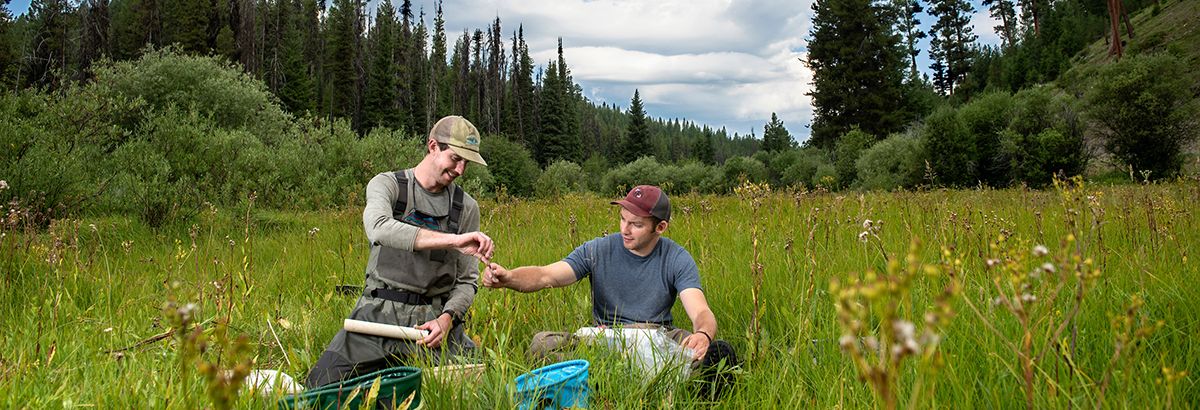Student Spotlight: Michelle Williams
In this episode of Confluence, hear from Michelle Williams, a master’s student in the sociology department, about her interest in gender and inequality, her path to sociology, and her thesis about truck stop employees.
STORY TRANSCRIPT
I grew up in a really conservative circle. Went to church twice a week and my school was a pretty Southern Baptist Christian school. And I'm gay. And so, that kind of, I feel like, brought up all of these kind of questions about sexuality and inequality in general. And then as you grow up you start to see that the world isn’t, you kind of lose the rose-colored glasses and things aren’t necessarily all happy and shiny. You know, you make friends who are struggling and that’s when I really started to become interested in things like class and inequality
My name is Michelle Williams and I study sociology. I'm getting my master's degree.
I knew that inequality existed, but I didn't really understand, like, the ideas that we’re taught about it in society didn't really seem consistent with what I was seeing. We're kind of taught that inequality is like a person's own fault. If you're poor it's because you don't work hard. And I didn't really think that that seemed accurate.
And so, I took a sociology class for my gen-eds and ended up being super hooked on it. Within the first week we were talking about like gender and sexuality and inequality and poverty and all of these things that I'd always been really, really interested in, but I had never actually had a chance to like, learn about in school. So, I declared my major and a couple years after that, I decided that I wanted to keep studying that in graduate school.
The thing that really got me on the track that I'm at now, is that I took some interesting jobs. So, I worked at a truck stop, I worked at a budget motel, and I worked as a canvasser for a political campaign. I saw so much struggling and I wanted to do something about it, I wanted to understand it better, it didn't seem right to me. And it was like a light bulb went off in my head and I was like, I got to do a thesis about these job experiences that I've had.
My advisor is Daisy Rooks. She really helped me narrow down my idea, because I didn't know if I wanted to think about hotels or gas stations or specifically truck stops or whatever. We started working on my thesis and I decided that what I was going to do was work at a truck stop over the summer, this last summer, and do an ethnography. So, with that I just worked like I would, anywhere. I came to work, I wore the uniform, I showed up, did my job. And then on my way home, I would record everything that had happened to that day.
The reason that I decided that I wanted to do the truck stop specifically is because it's a really interesting setting. There's this interesting combination of people who are long haul truck drivers, who you're going to see once and never again. And then there's truck drivers who have shorter routes, who you might see every week or even every day. And then there's also people who live nearby, who aren't truckers, who you're going to see often. And then, travelers, tourists, especially during the summer. So, there's so much going on there.
With that in mind, while I was there, I was noticing, first of all, that I was really getting a window into the worlds of people who are very different than me. The reason that it’s really important to me is that I'm really studying something that the specific intersections of all of these factors haven't been studied before. So, the fact that it's happening during COVID of course, you know, there's a ton of research coming out right now about frontline workers, about essential workers. But I haven't seen anything about specifically truck stop employees, which is really interesting because I've seen a lot of research on truckers themselves. But for the people who actually work at the truck stops, they don't really get talked about in academic circles. And I think that's a shame. It could be so much more interesting to really say these people who work at truck stops are nuanced and unique and interesting and by studying their experiences, we can really learn something about broader society.
Sociology is really good at helping tell people's stories and giving people insight into experiences that they may not have had. I'll never know what it's like to drill for oil in the Bakken, but I can definitely read a paper and get a really nuanced idea of what that's like and what it means for broader society. So, one of the things I love a lot about sociology is that you can do almost anything with it. I moved from being really interested in gender and sexuality to being really interested in this kind of frontline workers, service industry, working class topics like that. So, I really liked the flexibility that it offers, because if I, if I suddenly in two years become really interested in something else, I would probably be able to follow that.
